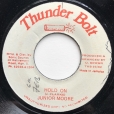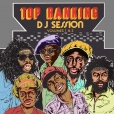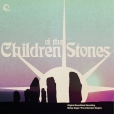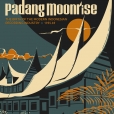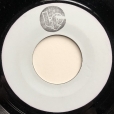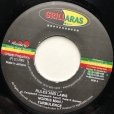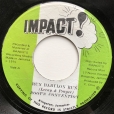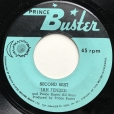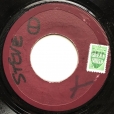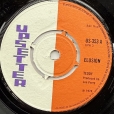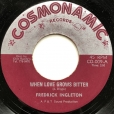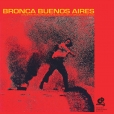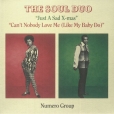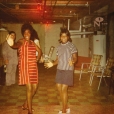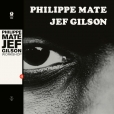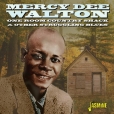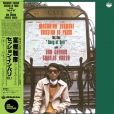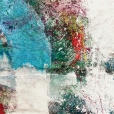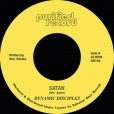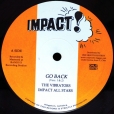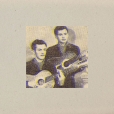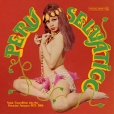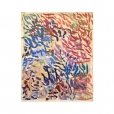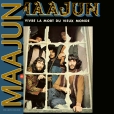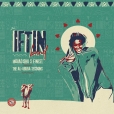Your basket is empty

A jackpot of no less than forty-four late-seventies toasts, produced by Errol T and Joe Gibbs.
Brilliantly exuberant wordplay over classic Mighty Two rhythms.
Droopy drawers, 44; stuffed with winners.
Please double-click through the label image for a sna of the B-side label, which is missing the print around its centre-hole.
Stinging electric blues and sparkling Texas stride-blues piano, and dapper, sad, droll singing, with a measure of the slurred wit and poise of Percy Mayfield.
Mercy Dee picked cotton like his parents, and his writing about rural poverty is unforgettable: check his first, minor hit Lonesome Cabin Blues, and the bigger One Room Country Shack, covered by Mose Allison, Jr. Wells and co. ‘If I ever get from around this harvest, I don’t even want to see a rose-bush grow / And if anyone ask me about the country, Lord have mercy on his soul.’ He also richly and lovingly disses various girlfriends: ‘the mule-head woman… her mind in the gutter, and her hands on my pocketbook’; ‘the bird-brain baby, with a heart the size of a mustard seed…’
These sides are from 1949-55 — for Spire, Imperial, Colony, Rhythm, Flair, and Specialty — but don’t miss his comeback LPs for Arhoolie, too.
‘My life is blank and empty, like a pea out of a shell.’
‘I’ve tried so hard, and failed, baby.’
“In the beginning of the pandemic we decided to take a turn and move to a small beach close to São Paulo, right in the middle of the rain forest… water definitely took a major role in our lives. We were living right in between the ocean and a waterfall, it´d rain for days on a roll sometimes and it was an open house where we had the sound of rain 360 degrees around us… I kinda think our music has a little of those different dynamics of water in its different states. Also, it might seem strange but São Paulo is a city in the water too, and it has a very chaotic relationship with it.”
‘The music itself is difficult to pin down: always kinetic and driven by fluid, nimble percussion, with a freeness to the sound overall, but also discipline, as the pair harness and channel the elemental force from which they’ve drawn their inspiration. At times the lines between Takara’s skittish percussion and Boregas’ idiosyncratic synth work and sound manipulation blur into flowing rivers or torrents of sound — here, both water and sound have the ability to awaken in us different memories, and emotional or physical states.
‘We could say say their sound contains clear influences from jazz, classic dub, krautrock, and the outer limits of post-punk. Contemporary allies include Holy Tongue, Shackleton, Oren Ambarchi…’
‘The debut album from this Berlin and Edinburgh-based duo is an intricate, robust, unique collection of songs, underpinned by intensely textured, interwoven guitars. It nods to Jim O’Rourke’s lounge numbers and the droll lyricism of Jonathan Richman; to Vini Reilly in its serpentine sparseness; to an unlikely confluence of Tortoise and Weather Report.
‘It opens in a flash of light, like a comet, with Mr. Wind-Up Bird. Passages of density rise up from stilled valleys. It’s easy to imagine the pair looking out over the rolling fields of their garden studio in East Lothian.
‘There is a similar crispness and precision to the percussion-work on A Certain Arrangement Of Atoms — where an old, slightly out of tune piano adds a few expressionist strokes to this pointillism, loosening the tension., till all we’re left with is the bass.
‘Although the album orbits around the pendulum sway of The Older I Get, it’s What Cats Think About that stands out most. It’s a Sun City Girls kind of curveball— warmly engaging, ramshackle, intimate, strange.’
‘The forerunner of Maajun. Five musicians — Jean-Pierre Arnoux, Cyril and Jean-Louis Lefebvre, Alain Roux and Roger Scaglia — and three times as many instruments at the service of electric-poetic, guerrilla folk and blues, which evokes the fantasy coming-together of Frank Zappa and Jacques Higelin, Sonny Sharrock and the Art Ensemble Of Chicago.’
Rawly funky blends of Banaadiri rhythms from southern Somalia with influences from Asia, the Middle East, and Africa — nuff Ethiopiques — featuring stinging Dhaanto guitar licks and hot brass, fronted by Mogadishu’s finest vocalists.
Drawn from cassettes recorded between 1982 and 1987 in the secret studio of the Al-Uruba hotel, and live sessions in the basement of the national theatre.
